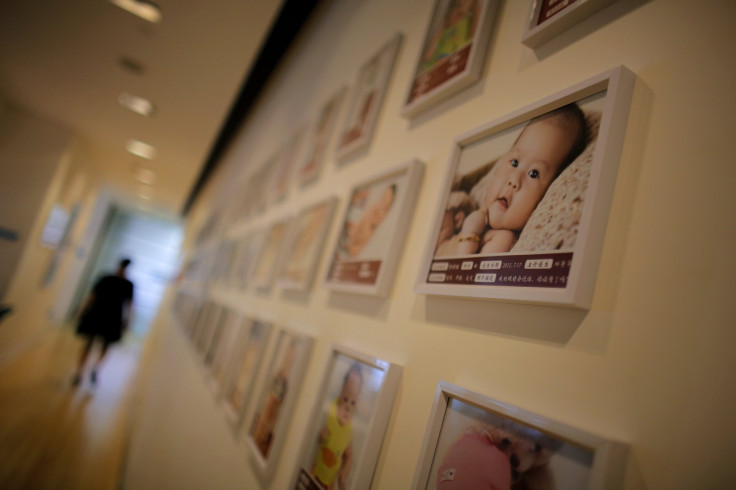UK Legislators To Vote On Legalizing 'Three-Person' Babies Born Through Mitochondrial Donation

The British parliament will vote on Tuesday on an amendment that aims to legalize the creation of babies using DNA extracted from three different people. The controversial procedure, which could prevent a mother from passing on genetic defects to her child, has divided British society, with several groups opposing it on ethical, religious and medical grounds, according to media reports.
A baby is born with genetic material from two parents -- the mother and the father. DNA from the mitochondria -- an organelle known as the powerhouse of the cell -- is, however, inherited only from the mother. Occasionally -- about once in 6,500 cases -- a defect in the mitochondrial DNA inherited by the offspring can result in degenerative diseases that can prove fatal for the child. Women with damaged mitochondria also face a higher risk of miscarriage.
The mitochondrial replacement technique, which will be voted on in parliament, offers the prospect of eradicating these defects by swapping the defective maternal mitochondria with a healthy one from a donor. The embryo created through this procedure would carry genetic material from three people -- nuclear DNA from the parents and healthy mitochondrial DNA from the donor.
Doug Turnbull, director of the Wellcome Trust Centre for Mitochondrial Research, where the technique was developed, urged parliament to vote in favor of legalizing the procedure, according to media reports.
“The only people who will suffer if this decision is delayed are the women whose clocks are ticking regarding their fertility. If a decision is not made they are the group who will lose out,” Turnbull reportedly said. “This is the only hope some women with a genetic condition have of having their own healthy children.”
While the government has reportedly backed the legalization of the technique “in principle,” the procedure has proven to be controversial and has reportedly sparked a fierce debate among religious groups and doctors, who have questioned its morality and safety.
“We need to be absolutely clear that the techniques that will be used will be safe, and we need to be absolutely sure that they will work,” Brendan McCarthy, Church of England adviser on medical ethics, said, according to a BBC report. The call was echoed by senior church figures from the Catholic Church in England and Wales.
“There are also serious ethical objections to this procedure, which involves the destruction of human embryos as part of the process,” John Sherrington, a Roman Catholic bishop, said, in a statement released Friday.
Other critics have expressed concerns that, if the technique is approved, doctors will be free to start tinkering with genomes, opening the door to designer babies.
However, 40 scientists from 14 different countries, including several Nobel Prize winners, have urged parliament to approve the procedure, stating, in a letter published in the Guardian, that mitochondrial donation could provide “affected families the opportunity to have healthy children.”
© Copyright IBTimes 2024. All rights reserved.












